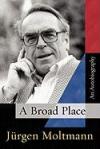I recently wrote a brief paper reflecting on Ray Anderson’s Theological Anthropology. I really enjoyed exploring the doctrine of humanity while reading Ray Anderson, so i thought it would be worthwhile to blog about his fundamental insights with my analysis mixed in. According to Anderson, his view of humanity flows out of four foundational theses. This post will explore the 1st of these 4 theses.
Thesis #1
According to Anderson, understanding humanity necessarily requires asserting a degree of mystery. To get answers to our “fundamental whys,” to use Peter Schaffer’s language, Anderson believes that we must move
beyond the threshold of the impersonal to the personal, from the nonhuman to the human, and from that which is merely creaturely to a human form of creatureliness (Anderson & Guernsey, 55-56).
Such is the nature of the task of theological anthropology according to Anderson. Our answers to such “fundamental whys” will always be provisional in nature.
With that caveat in mind, Anderson elaborates his four main assumptions of the structure of humanity. His initial assumption is that creatureliness is a necessary but insufficient condition for existence (Ibid, 56. Italics Author’s). Anderson believes that the understanding of humanity can have “no starting point but human existence itself (Anderson, 15).” This phenomenological approach, defined by Anderson as “an attempt to discern the meaning of events and experiences through what can be perceived by the sense,” in short means that we have to take the creaturely, the animal, part of humanity with utter seriousness (Ibid, 5). We may be more than mere creatures, but we are creatures, our vantage point inherently limited. Anderson poignantly points this out when he writes
We cannot deny creatureliness without denying the possibility of for our own humanity. We must come to terms with our creatureliness, with its mortality, with its limitations, with its mute psychical depths, with its mysterious yearnings as well as the sheer fact of it (Ibid, 23).
This apparent inherent limitation, while striving to take the realities of inculturation and sin seriously, seems to leave us doomed at the outset to ascertain any true understanding of ourselves. We are unable to find the transcendent vantage point to grasp who we really are. This, Anderson points out, is counter intuitively right where we need to be in order to understand ourselves (Anderson, 15-16). This is because understanding “the uniqueness of the human creature results from a determination that has its source outside the creaturely realm (Anderson & Guernsey, 56).” What Anderson’s initial assumption ultimately requires, which will be explored further later, is a radical reorientation of how we understand our world.
Reflection
Anderson’s initial thesis cuts against the grain of many theological anthropologies. This is b/c for Anderson we have not done a good enough job of recognizing the affinities we share with animals in regards to formulating a theological view of ourselves. While i don’t recall if he makes this point explicit, i get the sense that Anderson believes that this deficiency is part of the dark stain platonic thought has left on Christian theology. We’d much rather get past the “appearance,” our creatureliness, and move straight to the ”real,” our eternal soul. Sadly, this wrong-headed approach causes us to miss what the likeness, the image of God is since it is tied up into our creaturely nature. Rather, the imago dei easily often becomes confused with how we act in our bodies (dominion). I think that this initial thesis puts a challenge before us, b/c even if in the end we must reject Anderson’s conception, we cannot ignore his injunction that our creatureliness, our physicality, must play a fundamental part of any theological anthropology that is worth its salt.
Bibliography
Anderson, Ray S. On Being Human: Essays in Theological Anthropology.
Anderson, Ray S., and Guernsey, Dennis B. On Being Family: A Social Theology of the Family.










Derek,
In reading this, I’m reminded of how intellectually out of shape I am and why you are, as I have deemed you, “Theology’s Good Will Hunting.” I am always impressed with your grasp of subjects you are ingesting as well as your analysis. Nothing more for now. Just encouragement. I miss you brother.
Aaron
Pingback: Foundations for Theological Anthropology: Part 2 « A Thinker’s Progress
Pingback: Foundations for Theological Anthropology: Part 2 « A Thinker’s Progress